#containerization for DevOps
Explore tagged Tumblr posts
Text
Why Containerization is Crucial for Successful DevOps Implementation?

Understand the reasons why containerization is important for seamless DevOps implementation, its business scenario implications, and the benefits it offers to businesses.
0 notes
Text
youtube
The Best DevOps Development Team in India | Boost Your Business with Connect Infosoft
Please Like, Share, Subscribe, and Comment to us.
Our experts are pros at making DevOps work seamlessly for businesses big and small. From making things run smoother to saving time with automation, we've got the skills you need. Ready to level up your business?
#connectinfosofttechnologies#connectinfosoft#DevOps#DevOpsDevelopment#DevOpsService#DevOpsTeam#DevOpsSolutions#DevOpsCompany#DevOpsDeveloper#CloudComputing#CloudService#AgileDevOps#ContinuousIntegration#ContinuousDelivery#InfrastructureAsCode#Automation#Containerization#Microservices#CICD#DevSecOps#CloudNative#Kubernetes#Docker#AWS#Azure#GoogleCloud#Serverless#ITOps#TechOps#SoftwareDevelopment
2 notes
·
View notes
Text
#DevOps#kubernetes#maven#aws#ContinuousIntegration#CICD#Containerization#Microservices#DevOpsTools#DevOpsEngineer#Automation#Agile#InfrastructureAsCode#Course#education#software#CloudComputing#learnfromhome#nareshit
0 notes
Link
#Automation#cloud#configuration#containerization#deploy#DevOps#Docker#feedaggregator#FreshRSS#Linux#Monitoring#news#open-source#Performance#Privacy#RSSreader#self-hosted#Server#systemadministration#updates#webapplication
0 notes
Text
"Building Microservices" by Sam Newman is a definitive guide to designing, developing, and deploying microservices-based architectures. The book provides a deep understanding of the principles, patterns, and practices required to build scalable, maintainable, and resilient microservices. Below is a user-friendly, step-by-step breakdown of the key outcomes and takeaways from the book, designed to help readers understand and apply microservices effectively.
#Microservices#SoftwareArchitecture#DevOps#CloudComputing#MicroservicesArchitecture#DistributedSystems#SoftwareDevelopment#APIs#MicroservicesDesign#TechTutorial#BackendDevelopment#DevOpsCulture#Containerization#Kubernetes#Docker#CloudNative#MicroservicesDevelopment#APIManagement#ScalableSystems#TechBooks#SoftwareEngineering#AgileDevelopment#CI/CD#Serverless#TechTrends#SoftwareDeployment
0 notes
Text
Level up your skills where innovation meets efficiency. 👉Join our DevOps with AWS Cloud Training
✍️ Link: https://shorturl.at/Qr3xo ✅ Course Highlights:
Basic understanding of software development and deployment processes.
Familiarity with AWS services (recommended but not mandatory)
Knowledge of at least one programming language (e.g., Python, Java, JavaScript)
Familiarity with basic cloud computing concepts and terminology.
Proficiency in networking, storage, and virtualization fundamentals.
Basic understanding of Linux/Unix command-line interface
✍️ For FREE Demo : https://linktr.ee/clickone2
#DevOpsTools#devops#kubernetes#aws#cloudcomputing#continuousintegration#microservices#containerization#awscloud
0 notes
Text
Virtualization vs Containerization
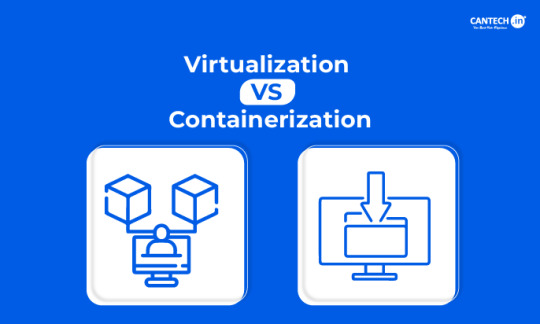
Virtual machines simulate entire systems, while containers share the OS for faster, lightweight app deployment. Both are game-changers for DevOps, but each shines in different scenarios. Explore which one fits your workflow best!
0 notes
Text

Dive into Docker courses for containerization skills, enabling agile development and deployment in modern application environments. https://www.dclessons.com/category/courses/docker
0 notes
Text

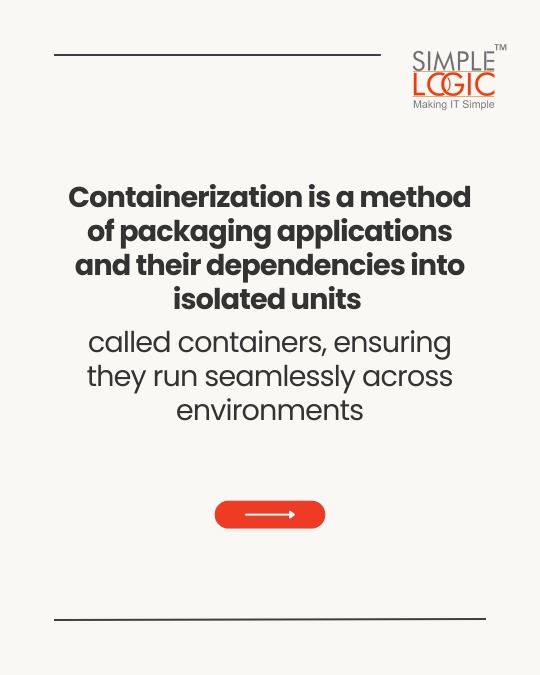
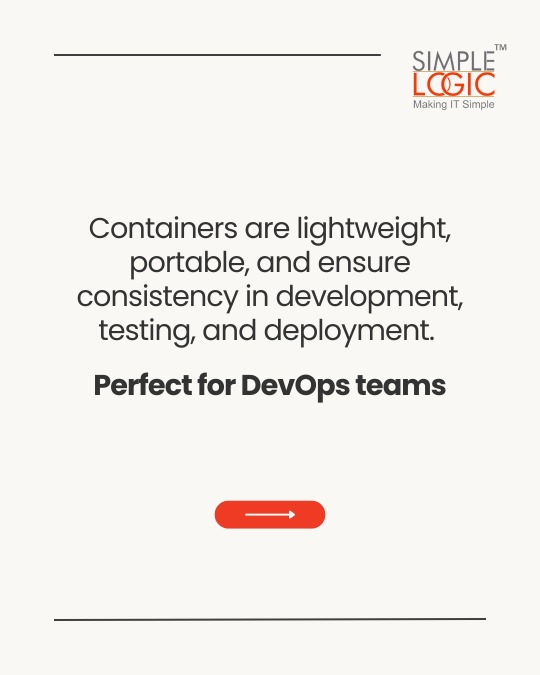
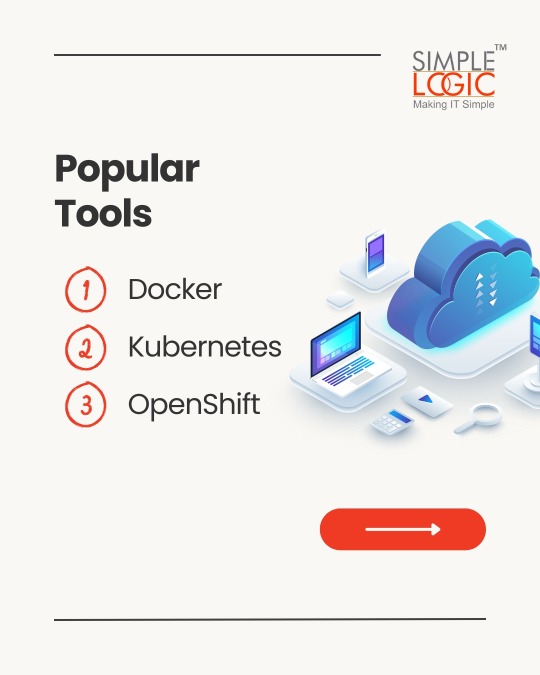
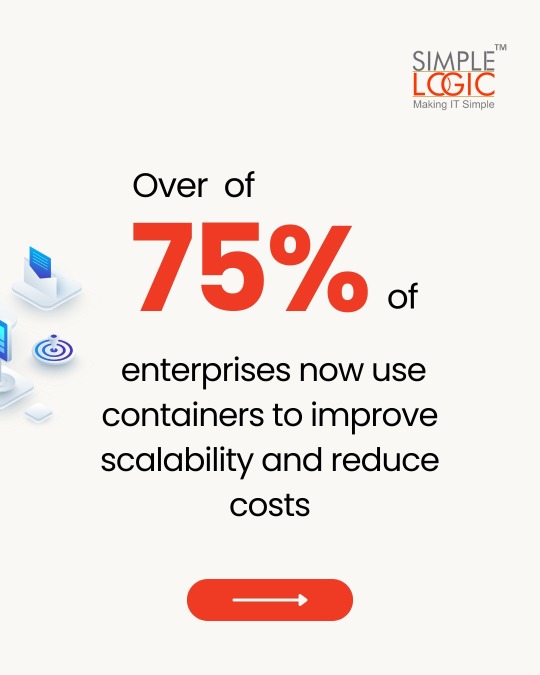

#TechKnowledge Have you heard of Containerization?
Swipe to discover what it is and how it can impact your digital security! 🚀
👉 Stay tuned for more simple and insightful tech tips by following us.
🌐 Learn more: https://simplelogic-it.com/
💻 Explore the latest in #technology on our Blog Page: https://simplelogic-it.com/blogs/
✨ Looking for your next career opportunity? Check out our #Careers page for exciting roles: https://simplelogic-it.com/careers/
#techterms#technologyterms#techcommunity#simplelogicit#makingitsimple#techinsight#techtalk#containerization#application#development#testing#deployment#devops#docker#kubernets#openshift#scalability#security#knowledgeIispower#makeitsimple#simplelogic#didyouknow
0 notes
Text
Leveraging Cloud-Native Technologies like Kubernetes
In the computerized age, organizations are progressively searching for ways of improving their IT framework to stay coordinated, cost-proficient, and versatile. SAP (Frameworks, Applications, and Items in Information Handling) is a main endeavor asset arranging (ERP) arrangement, controlling basic business processes across enterprises. As associations move to the cloud for better versatility and proficiency, utilizing cloud-local innovations, for example, Kubernetes for SAP jobs is turning into a unique advantage. read more

0 notes
Text
#ContainerOrchestration#CloudComputing#Kubernetes#Docker#Microservices#DevOps#CloudInfrastructure#Containerization#ITInfrastructure#DigitalTransformation#EdgeComputing#Automation#Scalability#InfrastructureManagement
0 notes
Text
Docker Demystified: A Beginner’s Guide to Understanding Containers and Their Architecture
This article aims to understand the concepts of Docker – A beginner friendly guide to all things – what Docker is, why modern IT industries are opting for this and what makes Docker their choice and if it is the right fit for you.
Ok, here it is, Docker is an open source tool that deals with Containers. And to understand this concept (Containerization) let’s take a peek into the time before Docker.
Before Docker, developers dwelled on Virtual Machines popularized as Virtualization. Virtualization, is the where we used Virtual Systems rather than using actual systems (Systems could be anything from Platforms, Hardware, Shared Computer Resources — Printer, Scanner etc.,) Here the issue was mainly because of its bulky nature and running multiple virtual machines challenged its efficiency. With Dockers creating containers, it was comparatively less burden on the system. In addition, Developers could ship their code into a container and securely run applications anywhere else.

What is Docker?
Docker, an open-source tool that provides platform-as-a-service uses OS virtualization to deliver software in packages called containers. These containers create an ideal environment through necessary provisions and libraries for its content to finish execution.
Docker architecture & how it works?
Being a Client—Server model Docker contains a Client, a Host and a Registry.
The Docker Client performs build and pull operations that let you manage, and manipulate the images and container through a Docker daemon. Docker daemons communicate with each other to maintain services. A daemon processes the API requests for images, containers etc.,
Docker host
The host is where the Containers, images and Docker daemon reside. It provides a complete environment to run your application.
Docker registry
The Docker registry popularly known as the Docker hub works as a repository to manage the images so you can pull or push the Docker images. The docker registry works both online and offline. The Docker hub online backed up by the cloud lets you download images from it or upload them to it with additional privacy. The offline hub benefits the local files. The Docker hub registry checks for required images and if it can’t find the files locally, it downloads from the cloud.
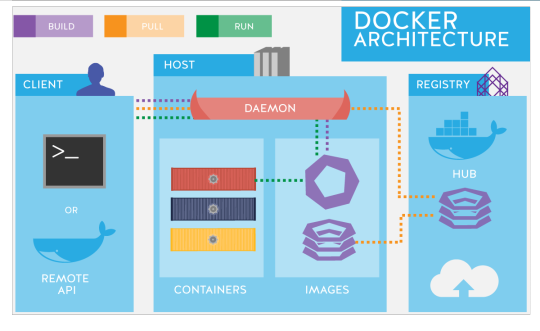
How does the Docker environment work?
The Docker Environment provides ample facilities to get the job done by a container. The Docker file is the text document with necessary functions that a user can call to assemble an image. After the completed process, the developer uses the Docker_build comment to create an automated build, which in the end can be configured and deployed.
Docker image
Docker Images, a read-only template is the means to create a Docker container. The instructions such as ADD, CMD, ENTRYPOINT, ENV, EXPOSE, FROM, MAINTAINER, RUN, USER, VOLUME, WORKDIR are used to build an image. You can pull images from the registry to build containers. The Docker image consists of a Base layer and a Top layer. The base layer is read-only and the top layer is writable. If you are to write in the base layer, the copy of the base layer is created onto the top layer. You can share the base layer as it remains unchanged.
Docker containers
The Docker containers process code in an isolated environment. It contains the required elements for processing (operating system, application code, runtime, system tools and libraries) that can communicate through specific channels and is a lightweight process. Docker containers are made up of Docker images. Usually, the images are in read-only format but the Docker can upgrade the image to read-write file system for build container.
Conclusion
To wrap things up, this Docker – A beginner-friendly guide must have a fair idea of what Docker is and why came into existence, its architecture and finally let me end it with the reasons that make it a better choice for your organization. Docker has become popular for its features for faster setup that requires comparatively less deployment time. Docker can adapt to various environments. On-time delivery and agility is an exceptional feature that makes Docker a better choice among institutions. The Docker seems to have an ideal environment for almost every element which is a far jump from Virtualization in the right direction.
0 notes
Text
Harnessing Containerization in Web Development: A Path to Scalability
Explore the transformative impact of containerization in web development. This article delves into the benefits of containerization, microservices architecture, and how Docker for web apps facilitates scalable and efficient applications in today’s cloud-native environment.
#Containerization in Web Development#Microservices architecture#Benefits of containerization#Docker for web apps#Scalable web applications#DevOps practices#Cloud-native development
0 notes
Text
Maximize Efficiency with Expert Docker Consulting Services

In the fast-paced world of software development, containerization has become a game-changer, offering unprecedented flexibility, scalability, and consistency. Docker, the leading containerization platform, allows developers to package applications and their dependencies into standardized units for seamless development, testing, and deployment across different environments. However, to fully harness Docker's potential, businesses often require specialized expertise. This is where Docker consulting services can provide invaluable support, helping organizations optimize their container strategies and accelerate their journey towards a more efficient DevOps ecosystem.
What is Docker?
Docker is an open-source platform designed to automate the deployment of applications inside lightweight, portable containers. These containers encapsulate everything needed to run an application—code, runtime, libraries, and settings—ensuring that the software behaves the same regardless of where it is executed. This eliminates the classic “it works on my machine” problem and streamlines the development workflow, making Docker an essential tool for modern software development.
Why Invest in Docker Consulting Services?
Customized Containerization Strategies Implementing Docker isn’t just about spinning up containers; it requires a strategic approach to ensure that your architecture is optimized for performance, security, and scalability. Docker consulting services provide tailored strategies that align with your business objectives, whether it's modernizing legacy applications, migrating to microservices, or streamlining your CI/CD pipelines.
Expert Guidance and Best Practices Docker offers powerful capabilities, but without proper guidance, organizations can face challenges like security vulnerabilities, inefficient resource utilization, and complex network configurations. Expert consultants bring a wealth of knowledge in Docker best practices, from container orchestration with Kubernetes to securing Docker images and managing container lifecycles, ensuring that your setup is robust and reliable.
Seamless Integration with DevOps Pipelines Docker plays a critical role in modern DevOps, enabling continuous integration and continuous deployment (CI/CD) processes. Consulting services help integrate Docker into your existing DevOps workflows, automating everything from code testing to application deployment. This reduces time to market and increases the efficiency of your development teams.
Cost Optimization While Docker can lead to significant cost savings, especially in terms of infrastructure, improper management can lead to resource sprawl and hidden costs. Consultants help optimize your Docker setup by right-sizing containers, implementing automated scaling policies, and leveraging Docker’s resource management tools to keep your operations cost-effective.
Training and Skill Development A key component of successful Docker adoption is having a team that understands how to use it effectively. Docker consulting services often include training and upskilling for your in-house developers and operations teams, equipping them with the necessary skills to manage and optimize your containerized environments.
Choosing the Right Docker Consulting Partner
Choosing the right consulting partner can make a significant difference in the success of your Docker initiatives. Look for a partner with extensive experience in Docker and container orchestration, as well as a deep understanding of your industry’s specific challenges. At Feathersoft Inc Solution, we specialize in providing Docker consulting services that are tailored to your unique needs. Our team of experts works closely with your organization to design, implement, and optimize your container strategy, helping you achieve your goals faster and more efficiently.
Conclusion
Docker consulting services can be the catalyst your business needs to fully realize the benefits of containerization. By leveraging expert guidance, tailored solutions, and ongoing support, you can transform your software development and deployment processes, achieving greater efficiency, scalability, and cost savings. Whether you’re new to Docker or looking to enhance your existing setup, the right consulting partner can help you navigate the complexities of containerization and unlock its full potential.
#Docker#DevOps#Containerization#DockerConsulting#CloudComputing#Kubernetes#Microservices#SoftwareDevelopment#CI/CD#ITConsulting#CloudNative#Technology#CloudServices#DigitalTransformation
0 notes
Link
#autoSSL#Automation#cloud#configuration#containerization#DevOps#Docker#HTTPS#Let'sEncrypt#Linux#networking#NGINX#proxyserver#reverseproxy#Security#self-hosted#servermanagement#systemadministration#TLS#Traefik#webserver
0 notes
Text
Unlock the Power of Azure Container Registry for Flawless App Deployments
Unlock the full potential of your cloud-native deployments with Azure Container Registry and Azure Container Apps! Dive into our latest blog to learn how to streamline, secure, and scale your containerized applications with ease. Don’t miss out—read it no
In our previous blog, we explored the basics of Azure Container Apps and how they can transform your cloud-native application deployments. Now, it’s time to dig a little deeper into one of the key components that make this magic possible: Azure Container Registry (ACR). Whether you’re a developer looking to streamline your deployment process or an IT professional tasked with managing…
#ApplicationDeployment#Azure#AzureContainerApps#AzureContainerRegistry#CloudComputing#CloudNative#ContainerDeployment#containerization#ContainerSecurity#DevOps#DevProfessionals#Docker#ITManagement#SoftwareDevelopment#TechTutorial
0 notes